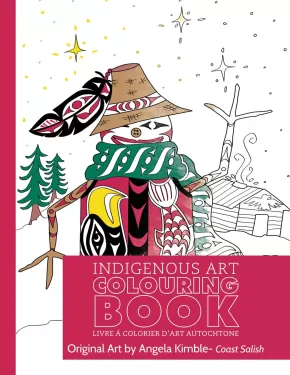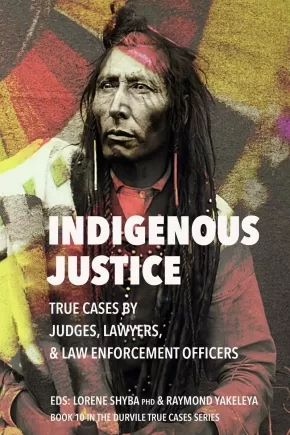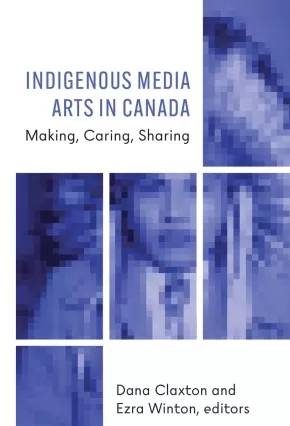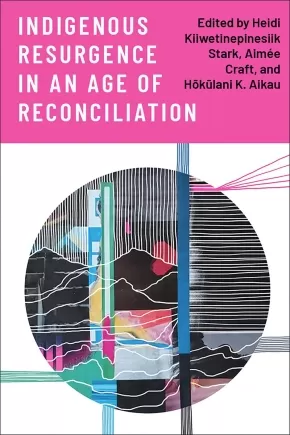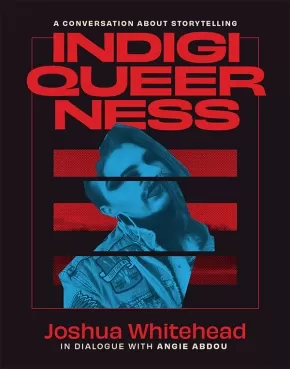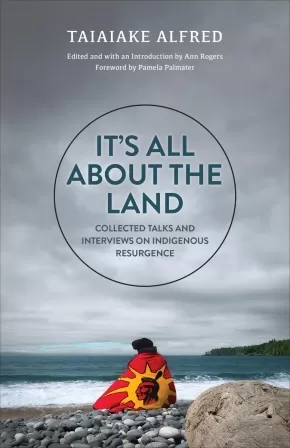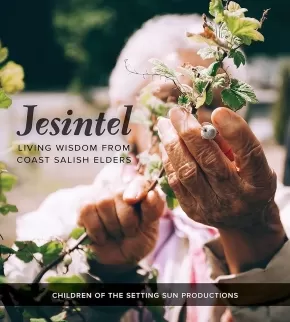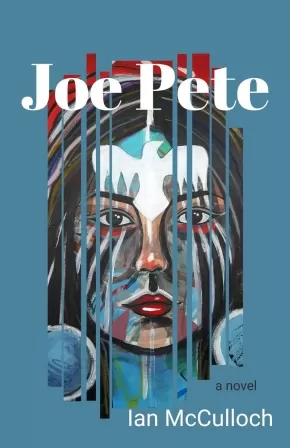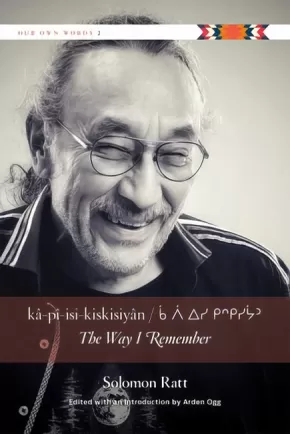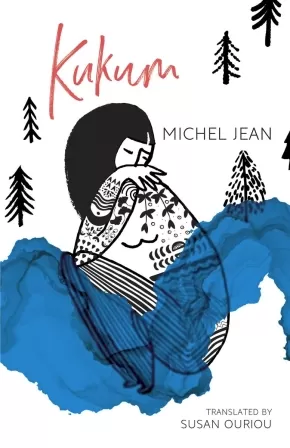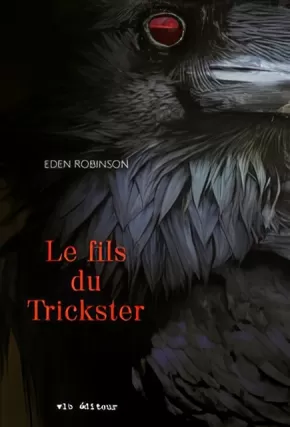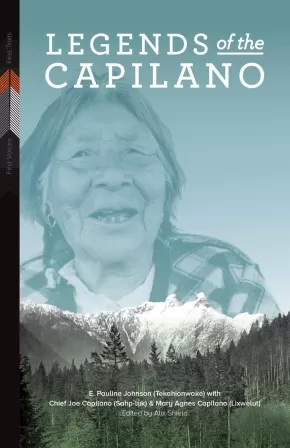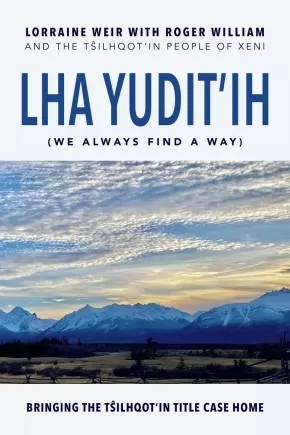
First Nations
211
-
225
of
800 Results;
Sort By
Go To
of 54
Held by the Land: A Guide to Indigenous Plants for Wellness
$32.99
Format:
Hardcover
Text Content Territories:
Indigenous Canadian; First Nations; Salish; Coast Salish; Squamish;
ISBN / Barcode: 9781577152941
Synopsis:
Synopsis:
Author Leigh Joseph, an ethnobotanist and a member of the Squamish Nation, provides a beautifully illustrated essential introduction to Indigenous plant knowledge.
Plants can be a great source of healing as well as nourishment, and the practice of growing and harvesting from trees, flowering herbs, and other plants is a powerful way to become more connected to the land. The Indigenous Peoples of North America have long traditions of using native plants as medicine as well as for food. Held by the Land honors and shares some of these traditions, offering a guide to:
- Harvesting herbs and other plants and using them topically
- North American plants that can treat common ailments, add nutrition to your diet, become part of your beauty regime, and more
- Stories and traditions about native plants from the author's Squamish culture
- Using plant knowledge to strengthen your connection to the land you live on
Early chapters will introduce you to responsible ways to identify and harvest plants in your area and teach you how to grow a deeper connection with the land you live on through plants. In the plant profiles section, common plants are introduced with illustrations and information on their characteristics, range, how to grow and/or harvest them, and how to use them topically and as food. Special features offer recipes for food and beauty products along with stories and traditions around the plants.
This beautiful, full-color guide to Indigenous plants will give you new insights into the power of everyday plants.
Additional Informaiton
192 pages | 8.00" x 9.25" | Hardcover
Indigenous Art Colouring Book: Holidays
$10.00
Artists:
Format:
Paperback
Text Content Territories:
Indigenous Canadian; First Nations; Salish; Coast Salish;
ISBN / Barcode: COLOURING029
Synopsis:
Synopsis:
This Indigenous Art Colouring Book features Holiday designs to colour from Coast Salish artist Angela Kimble.
Included are 28 colouring pages based on original pieces of artwork created by the artist, as well as information on the artist's cultural background and the artist's biography. The artist is paid royalties for the sale of this product.
Additional Information
8.5" x 11" | 28 Colouring Pages | Made in Canada
Indigenous Justice: True Cases by Judges, Lawyers, and Law Enforcement Officers
$35.00
Editors:
Format:
Paperback
Text Content Territories:
Indigenous Canadian;
ISBN / Barcode: 9781990735264
Synopsis:
Synopsis:
In the spirit of truth and reconciliation, judges, lawyers, and law enforcement officers write about working with First Nations, Métis, and Inuit Peoples through their trials and tribulations with the criminal justice system. The stories are a mix of previously published essays from the Durvile True Cases anthologies with an equal number of new chapters by legal and law enforcement professionals including Justice Thomas Berger (posthumous), Justice Nancy Morrison, Justice John Reilly, Senator Kim Pate, lawyers Eleanore Sunchild, Brian Beresh, and John L. Hill, and parole and police officers Doug Heckbert, Ernie Louttit, Val Hoglund, and Sharon Bourque.
Reviews
“I’m struck by how the True Cases series has a multiplicity of authentic perspectives that are able to be our proxy or conduit into amazing worlds... Stories that are happening in our community and to our neighbours that we should know about but don’t.” —Grant Stovers, CKUA Radio
Additional Information
288 pages | 6.00" x 9.00" | Paperback
Indigenous Media Arts in Canada: Making, Caring, Sharing
$46.99
Editors:
Format:
Paperback
Text Content Territories:
Indigenous Canadian;
Reading Level: N/A
ISBN / Barcode: 9781771125413
Synopsis:
Synopsis:
Indigenous and settler scholars and media artists discuss and analyze crucial questions of narrative sovereignty, cultural identity, cultural resistance, and decolonizing creative practices.
Humans are narrative creatures, and since the dawn of our existence we have shared stories. Storytelling is what connects us, what helps us give shape and understanding to the world and to each other. Who tells whose stories in which particular ways leads to questions of belonging, power, relationality, community and identity. This collection explores those issues with a focus on settler-Indigenous cultural politics in the country known as Canada, looking in particular at Indigenous representation in media arts. Chapters feature roundtable discussions, interviews, film analyses, resurgent media explorations, visual culture advocacy and place-based practices of creative expression.
Eclectic in scope and diverse in perspective, Indigenous Media Arts in Canada is unified by an ethic of conciliation, collaboration, and cultural resistance. Engaging deftly and thoughtfully with instances of cultural appropriation as well as the oppressive structures that seek to erode narrative sovereignty, this collection shines as a crucial gathering of thoughtful critique, cultural kinship, and creative counterpower.
Reviews
“Dana Claxton and Ezra Winton’s collection of conversations between, for, and about Indigenous media makers poses vital, critical, and generative questions about Indigenous film, film festivals and institutions, residential school histories, and decolonization without providing easy answers. These conversations are at times joyful expressions of the radical possibilities of media arts and at times painful provocations about settler colonial violence and its representational apparatuses. The chapters, written by the most brilliant and creative minds in contemporary Indigenous film, are paradigm-shifting love letters to the land, lived experience, collaboration, and futurity.” —Michelle Raheja, Associate Professor, Department of English, University of California, Riverside, author of Reservation Reelism: Redfacing, Visual Sovereignty, and Representations of Native Americans in Film
Educator Information
Table of Contents
Indigenous Media Arts in Canada: Making, Caring, Sharing – Edited by Dana Claxton and Ezra Winton
Acknowledgements
Introduction: Seeing, Knowing, Lifting – Dana Claxton and Ezra Winton
Part I – Decolonizing Media Arts Institutions
Part I Introduction – Dana Claxton and Ezra Winton
1. Our Own Up There: A Discussion at imagineNATIVE – Danis Goulet and Tasha Hubbard with Jesse Wente, Alethea Arnaquq-Baril and Shane Belcourt
2. Curating the North: Documentary Screening Ethics and Inuit Representation in Canada – Ezra Winton and Alethea Arnaquq-Baril
3. Sights of Homecoming: Locating Restorative Sites of Passage in Zacharias Kunuk’s Festival Performance of Angirattut – Claudia Sicondolfo
Part II – Protecting Culture
Part II Introduction – Dana Claxton and Ezra Winton
4. Addressing Colonial Trauma Through Mi’kmaw Film – Margaret Robinson and Bretten Hannam
5. Not Reconciled: The Complex Legacy of Films on Canadian "Indian" Residential Schools – Brenda Longfellow
6. The Resurgence of Indigenous Women in Contemporary Québec Cinema – Karine Bertrand
7. “Our Circle Is Always Open”: Indigenous Voices, Children’s Rights, and Spaces of Inclusion in the Films of Alanis Obomsawin – Joanna Hearne
Part III – Methods/Knowledges/Interventions
Part III Introduction Dana Claxton and Ezra Winton
8. Indigenous Documentary Methodologies: ChiPaChiMoWin: Telling Stories – Jules Arita Koostachin
9. Marking and Mapping Out Embodied Practices through Media Art – Julie Nagam and Carla Taunton
10. Curatorial Insiders/Outsiders: Speaking Outside and Collaboration as Strategic Intervention – Toby Katrine Lawrence
11. The Generative Hope of Indigenous Interactive Media: Ecological Knowledge and Indigenous Futurism – Michelle Stewart
Part IV - Resurgent Media/Allies/Advocacy
Part IV Introduction – Dana Claxton and Ezra Winton + Sasha Crawford-Holland and Lindsay LeBlanc
12. “Making Things Our [Digital] Own”: Lessons on Time and Sovereignty from Indigenous Computational Art – Sasha Crawford-Holland and Lindsay LeBlanc
13. Careful Images: Unsettling Testimony in the Gladue Video Project – Eugenia Kisin and Lisa Jackson
Concluding Thoughts
Part 1: Beyond Words and Images – Ezra Winton and Dana Claxton Part 2: Setting the Record Straight – Lisa Jackson
About the Contributors
References
Index
Contributors
Alethea Arnaquq-Baril
Shane Belcourt
Karine Bertrand
Dana Claxton
Sasha Crawford-Holland
Danis Goulet
Bretten Hannam
Joanna Hearne
Tasha Hubbard
Lisa Jackson
Eugenia Kisin
Jules Arita Koostachin
Toby Katrine Lawrence
Lindsay LeBlanc
Brenda Longfellow
Julie Nagam
Margaret Robinson
Claudia Sicondolfo
Michelle Stewart
Carla Taunton
Jesse Wente
Ezra Winton
Additional Information
450 pages | 6.00" x 9.00" | Paperback
Indigenous Resurgence in an Age of Reconciliation
$39.95
Format:
Paperback
Text Content Territories:
Indigenous Canadian;
Reading Level: N/A
ISBN / Barcode: 9781487544607
Synopsis:
Synopsis:
What would Indigenous resurgence look like if the parameters were not set with a focus on the state, settlers, or an achievement of reconciliation? Indigenous Resurgence in an Age of Reconciliation explores the central concerns and challenges facing Indigenous nations in their resurgence efforts, while also mapping the gaps and limitations of both reconciliation and resurgence frameworks.
The essays in this collection centre the work of Indigenous communities, knowledge, and strategies for resurgence and, where appropriate, reconciliation. The book challenges narrow interpretations of indigeneity and resurgence, asking readers to take up a critical analysis of how settler colonial and heteronormative framings have infiltrated our own ways of relating to our selves, one another, and to place. The authors seek to (re)claim Indigenous relationships to the political and offer critical self-reflection to ensure Indigenous resurgence efforts do not reproduce the very conditions and contexts from which liberation is sought.
Illuminating the interconnectivity between and across life in all its forms, this important collection calls on readers to think expansively and critically about Indigenous resurgence in an age of reconciliation.
Reviews
"This book is an undoubtedly critical, original, and powerful contribution to the field of Indigenous studies and beyond. With sound scholarship, the contributors show us how disentangling from reconciliation discourses is not only a tool of critique, but also a methodology for understanding how settler concepts of territoriality and authority have shaped Indigenous peoples’ understandings of themselves, their governments, and their relationships to land and to one another." — Shiri Pasternak, Assistant Professor of Criminology, Toronto Metropolitan University
"The relationship between reconciliation and resurgence is a complicated and, at times, deeply contested one. This volume does an excellent job of situating itself within the wider literature on resurgence and reconciliation and their conflicted and/or complimentary relationship. This is an important contribution to a fraught conversation, and it provides many different perspectives that help to, if not resolve, then guide the conversation beyond its current roadblocks towards something better." — Joshua Nichols, Assistant Professor in the Faculty of Law, McGill University
Additional Information
280 pages | 6.00" x 9.00" | Paperback
Indigiqueerness: A Conversation about Storytelling
$19.99
Format:
Paperback
Text Content Territories:
Indigenous Canadian; First Nations; Anishinaabeg; Oji-Cree;
Reading Level: N/A
ISBN / Barcode: 9781771993913
Synopsis:
Synopsis:
Everything I’ve crafted and made has been a whirlwind of community and folks and friends and lovers and family. I kind of write as an animated avatar. A lot of my material comes from listening fiercely to those around me and witnessing that which is discarded or not seen." - Joshua Whitehead
Evolving from a conversation between Joshua Whitehead and Angie Abdou, Indigiqueerness is part dialogue, part collage, and part memoir. Beginning with memories of his childhood poetry and prose and travelling through the library of his life, Whitehead contemplates the role of theory, Indigenous language, queerness, and fantastical worlds in all his artistic pursuits. This volume is imbued with Whitehead’s energy and celebrates Indigenous writers and creators who defy expectations and transcend genres.
Additional Information
48 pages | 5.50" x 7.00" | Paperback
It's All about the Land: Collected Talks and Interviews on Indigenous Resurgence
$29.95
Editors:
Format:
Paperback
Text Content Territories:
Indigenous Canadian; First Nations; Haudenosaunee (Iroquois); Kanyen'keha:ka (Mohawk); Indigenous;
Reading Level: N/A
ISBN / Barcode: 9781487552831
Synopsis:
Synopsis:
Illuminating the First Nations struggles against the Canadian state, It’s All about the Land exposes how racism underpins and shapes Indigenous-settler relationships. Renowned Kahnawà:ke Mohawk activist and scholar Taiaiake Alfred explains how the Canadian government’s reconciliation agenda is a new form of colonization that is also guaranteed to fail.
Bringing together Alfred’s speeches and interviews from over the past two decades, the book shows that Indigenous peoples across the world face a stark choice: reconnect with their authentic cultures and values or continue following a slow road to annihilation. Alfred proposes a radical vision for contesting and confronting the ongoing genocide of the original peoples of this land: Indigenous Resurgence. This way of thinking, being, and practising represents an authentic politics that roots resistance in the spirit, knowledge, and laws of the ancestors.
Set against the historic arc of Indigenous-settler relations in Canada and drawing on the rich heritage of First Nations resistance movements, It’s All about the Land traces the evolution of Indigenous struggle and liberation through the dynamic processes of oratory, dialogue, action, and reflection.
Reviews
"It is Taiaiake’s call to face the uncomfortable truths of colonization and the impacts it has had on our Nations, families, and individuals that makes his work stand out. As his work is such a challenge to the current unjust status quo, it has been both embraced and rejected. This is a clear sign that he is on to something" — Pam Palmater, from the Foreword
“It’s All About the Land is a long-awaited, vital contribution and is an essential reading for anyone who wants to understand the injustices Native people live under and what we should be doing about it.” — Grand Chief Kahsennenhawe Sky-Deer, Mohawk Council of Kahnawà:ke
“Taiaiake Alfred is a thought shifter who builds fires with his words. Anyone who cares about Indigenous issues and craves to be jolted into action should read this book -- a real counter narrative to the status quo.” — Chelsey Luger, Lakota and Anishinaabe, author of The Seven Circles: Indigenous Teachings for Living Well
“It’s All About the Land takes mainstream assumptions about reconciliation as seen and processed through a colonial filter and turns them on their head. Insightful, informative, and deeply thoughtful, this book will have you thinking differently about decolonization and what reconciliation really stands for. Ultimately, it asks all of us to do and be more.” — Toula Drimonis, writer, columnist, and author of We, the Others: Allophones, Immigrants, and Belonging in Canada
“Some may be surprised, given my position and our respective philosophical world views, that I count Taiaiake as a friend, but his work forces me to scrutinize and constantly question my actions and those of my government so as not to reproduce the horrific social experiment that has devastated Indigenous peoples.” — The Honourable Marc Miller, Minister of Crown-Indigenous Relations
Educator Information
This book challenges conventional thinking about reconciliation. Renowned Kahnawà:ke Mohawk activist and scholar Taiaiake Alfred argues that reconciliation is another form of colonization and instead proposes Indigenous Resurgence as a radical vision for contesting and confronting the continuing genocide of the Original Peoples.
Contents
Foreword: The Battle to Decolonize Ourselves Inside and Out
Pamela Palmater
Introduction
Ann Rogers
Wasáse Redux
June 2005, TV Ontario
From Noble Savage to Righteous Warrior
March 6, 2010, Vancouver, BC
The Psychic Landscape of Contemporary Colonialism
November 9, 2011, Ottawa
Practical Decolonization
April 9, 2012, Kingston, ON
Warrior Scholarship
March 18, 2013, Victoria, BC
Constitutional Recognition and Colonial Doublespeak
November 27, 2013, Melbourne, Australia
On Being and Becoming Indigenous
November 28, 2013, Melbourne, Australia
Reconciliation as Recolonization
September 20, 2016, Montreal, QC
From Red Power to Resurgence
November 2, 2018, Vancouver, BC
Rebuilding the Fire: In Conversation with Pamela Palmater
July 5, 2019, Warrior Life Podcast
Ronón:kwe
January 19, 2021, The Mythic Masculine Podcast
Rooted Responsibility
March 2021, Victoria, BC
You Can’t Decolonize Colonization
September 16, 2022, The Decolonized Buffalo Podcast
Afterword: Wa'tkwanonhwerá:ton
Taiaiake Alfred
Bonus Track: The Four Intuitions
April 20, 2003, TV Ontario
A Note on the Sources
Index
Additional Information
304 pages | 5.50" x 8.50" | 11 b&w illustrations | Paperback
JAJ: A Haida Manga
$34.95
Artists:
Format:
Hardcover
Text Content Territories:
Indigenous Canadian; First Nations; Haida;
Reading Level: N/A
ISBN / Barcode: 9781771623537
Synopsis:
Synopsis:
With gorgeous imagery, visual artist Michael Nicoll Yahgulanaas brings to life the tumultuous history of first contact between Europeans and Indigenous peoples and the early colonization by the Europeans of the northern West Coast.
Yahgulanaas uses a blend of traditional and modern art, eschewing the traditional boxes of comic books for the flowing shapes of North Pacific iconography. The panels are filled with colourful and expressive watercolour paintings. The panels of each page, if removed and assembled into one whole image, form a large image reminiscent of a woven robe.
The story follows several historical figures, including Johan Adrian Jacobsen (JAJ), who comes to the Haida village of Masset to collect specimens for a German museum, through a time span that includes first contact, the devastation of the smallpox epidemic, and the mass resettlement of disenfranchised peoples, both Indigenous and European.
Reviews
“This book is a necessary tale told by the perfect voice at the right time. It also uses graphic imagery in a way I've not seen before, and it feels ground-breaking.” — Douglas Coupland
Additional Information
132 pages | 8.00" x 10.00" | Hardcover
Jesintel: Living Wisdom from Coast Salish Elders
$48.00
Artists:
Format:
Paperback
Text Content Territories:
Indigenous Canadian; First Nations; Salish; Coast Salish; Sto:lo; Saanich (WSANEC); Tsartlip; Musqueam; Malahat; Cowichan; Tsleil-Waututh; Indigenous American; Native American; Salish; Coast Salish; Tulalip; Swinomish; Snoqualmie; Nisqually; Muckleshoot; Lhaq'temish (Lummi Nation); Klallam (Clallam); Jamestown S'Klallam;
Grade Levels: 12; University/College;
ISBN / Barcode: 9780295748641
Synopsis:
Synopsis:
“We need to learn and grow together, and if we are able to do this, we will create harmony,” counsels Tom Sampson, an elder of Tsartlip First Nation in British Columbia.
Dynamic and diverse, Coast Salish culture is bound together by shared values and relations that generate a resilient worldview. Jesintel—"to learn and grow together"—characterizes the spirit of this book, which brings the cultural teachings of nineteen elders to new generations.
Featuring interviews that share powerful experiences and stories, Jesintel illuminates the importance of ethical reciprocal relationships and the interconnectedness of places, land, water, and the spirit within all things. Elders offer their perspectives on language revitalization, Coast Salish family values and naming practices, salmon, sovereignty, canoe racing, and storytelling. They also share traumatic memories, including of their boarding school experiences and the epidemics that ravished their communities. Jesintel highlights the importance of maintaining relations and traditions in the face of ongoing struggles. Collaboration is at the heart of this work and informs how the editors and community came together to honor the boundless relations of Coast Salish people and their territories.
Elders Interviewed:
Tom Sampson (Tsartlip First Nation)
Virginia Cross (Muckleshoot Tribe)
Ernestine Gensaw (Lummi Nation)
Steve and Gwen Point (Stó:lō Nation)
Gene and Wendy Harry (Malahat Nation)
Claude Wilbur (Swinomish Tribe)
Richard Solomon (Lummi Nation)
Elaine Grinell (Jamestown S’Klallam Tribe)
Arvid Charlie (Cowichan Nation)
Amy George (Tsleil-Waututh Nation)
Nancy Shippentower (Nisqually Tribe)
Nolan Charles (Musqueam Indian Band)
Andy de los Angeles (Snoqualmie Tribe)
Jewell James (Lummi Nation)
Kenny Moses Sr. Family (Tulalip Tribal Nation)
Ramona Morris (Lummi Nation)
Reviews
"A beautiful sharing of thriving Coast Salish communities. Indigenous elders, cultures, and languages have so much precious wisdom to share, and Jesintel celebrates these through storytelling and photos. It is a generous gift to anyone who wants to better understand the resilience of Indigenous communities."- Michelle M. Jacob (Yakama), author of The Auntie Way: Stories Celebrating Kindness, Fierceness, and Creativity
Educator Information
Nineteen elders from Coast Salish communities in the Pacific Northwest and British Columbia offer a portrait of their perspectives on language, revitalization, and Coast Salish family values. Topics include naming practices, salmon, canoe journeys and storytelling.
Additional Information
224 pages | 9.00" x 10.00" | 144 colour illustrations | 1 map | Paperback
Joe Pete
$23.95
Format:
Paperback
Text Content Territories:
Indigenous Canadian; First Nations; Cree (Nehiyawak); Moose Cree; Missanabie Cree First Nation;
Reading Level: N/A
ISBN / Barcode: 9781988989723
Synopsis:
Synopsis:
A multi-generational story of loss, war, community, survival, perseverance, and renewal.
Joe Pete and her cousin Simon will find more than they anticipated buried beneath the snow as they search for her missing father. Their journey will unlock the ancestors and spirits embedded in the present who call back to a past marked by war and kinship, by conflict and wisdom that continue to contour their trajectory towards the future.
Additional Information
300 pages | 5.50" x 8.50" | Paperback
kâ-pî-isi-kiskisiyân / The Way I Remember
$25.95
Format:
Paperback
Text Content Territories:
Indigenous Canadian; First Nations; Cree (Nehiyawak);
ISBN / Barcode: 9780889779143
Synopsis:
Synopsis:
A residential school survivor finds his way back to his language and culture through his family’s traditional stories.
When reflecting on forces that have shaped his life, Solomon Ratt says his education was interrupted by his schooling. Torn from his family at the age of six, Ratt was placed into the residential school system—a harsh, institutional world, operated in a language he could not yet understand, far from the love and comfort of home and family. In kâ-pî-isi-kiskisiyân / The Way I Remember, Ratt reflects on these memories and the life-long challenges he endured through his telling of âcimisowin—autobiographical stories—and also traditional tales.
Written over the course of several decades, Ratt describes his life before, during, and after residential school. In many ways, these stories reflect the experience of thousands of other Indigenous children across Canada, but Ratt’s stories also stand apart in a significant way: he managed to retain his mother language of Cree by returning home to his parents each summer despite the destruction wrought by colonialism.
Ratt then shifts from the âcimisowina (personal, autobiographical stories) to âcathôhkîwina, (sacred stories) the more formal and commonly recognized style of traditional Cree literature, to illustrate how, in a world uninterrupted by colonialism and its agenda of genocide, these traditional stories would have formed the winter curriculum of a Cree child’s education.
Presented in Cree Th-dialect Standard Roman Orthography, syllabics, and English, Ratt’s reminiscences of residential school escapades almost always end with a close call and a smile. Even when his memories are dark, Ratt’s particularly Cree sense of humour shines, making kâ-pî-isi-kiskisiyân /The Way I Remember an important and unique memoir that emphasizes and celebrates Solomon Ratt’s perseverance and life after residential school.
Reviews
"Sol is an international treasure the whole world should enjoy." —Buffy Sainte-Marie
"The Way I Remember is inarguably the most important book yet to be published for the preservation of the Cree language and an understanding of the importance of the oral tradition to Cree culture and education." —Jesse Archibald-Barber, First Nations University of Canada
"As he looks back over his life journey reclaiming, breathing new and old life back into our beautiful language, Solomon credits the late Reverend Edward Ahenekew for helping me "to put the pieces together." kista meena dear Solomon, ekosi aytotumawiyak. This is an important book because you have also put pieces together for us so that we can have a good journey. Kinahnaskomtin." —Maria Campbell, author of Halfbreed
"A gift to future generations...Full of humour and resilience in equal measure, these Cree/English stories offer us a glimpse into a world as it was, and future that could be" —Chelsea Vowel, author of Indigenous Writes
Educator & Series Information
Presented in Cree Th-dialect Standard Roman Orthography, syllabics, and English.
This book is part of the Our Own Words series.
Additional Information
264 pages | 6.00" x 9.00" | Paperback
Kukum
$22.99
Format:
Paperback
Text Content Territories:
Indigenous Canadian; First Nations; Innu (Montagnais-Naskapi); Mashteuiatsh (Pekuakamiulnuatsh);
Reading Level: N/A
ISBN / Barcode: 9781487010904
Synopsis:
Synopsis:
A Quebec bestseller based on the life of Michel Jean's great-grandmother that delivers an empathetic portrait of drastic change in an Innu community.
Kukum recounts the story of Almanda Siméon, an orphan raised by her aunt and uncle, who falls in love with a young Innu man despite their cultural differences and goes on to share her life with the Pekuakami Innu community. They accept her as one of their own: Almanda learns their language, how to live a nomadic existence, and begins to break down the barriers imposed on Indigenous women. Unfolding over the course of a century, the novel details the end of traditional ways of life for the Innu, as Almanda and her family face the loss of their land and confinement to reserves, and the enduring violence of residential schools.
Kukum intimately expresses the importance of Innu ancestral values and the need for freedom nomadic peoples feel to this day.
Educator Information
Translated by Susan Ouriou.
Additional Information
224 pages | 5.50" x 8.50" | Paperback
Le fils du Trickster
$34.95
Text Content Territories:
Indigenous Canadian; First Nations; Haisla (Kitamaat);
ISBN / Barcode: 9782896498819
Synopsis:
Synopsis:
— Je m'appelle Jared.
— Trickster. Tu sens encore la foudre.
Jared, 16 ans, a un solide problème d'alcool, une blonde non binaire vraiment politisée et la mère la plus terrifiante de la planète. Il a aussi le don de se mettre dans le trouble, entre son trafic de biscuits au pot, ses fréquents blackouts et sa grande gueule. Et ça, c'est sans compter les loutres cannibales, les hommes-gorilles, les lucioles philosophes et les soupçons de sa grand-mère, convaincue qu'il n'est pas un être humain, mais le fils de Wee'git, l'esprit qui tourmente sa famille depuis des générations.
Bestseller finaliste au prix Giller, Le fils du Trickster dose savamment l'apparition d'un fantastique issu de mythes autochtones ancestraux, nous faisant douter de la santé mentale de ses personnages, mais jamais de leur vérité.
Educator & Series Information
This book is part of the Trickster Trilogy.
Translated from English by Marie Frankland.
Note: This novel contains mature subject matter, such as drug use and depictions of sex and violence.
This book is available in English: Son of a Trickster
Additional Information
416 Pages
Legends of the Capilano
$24.95
Editors:
Format:
Paperback
Text Content Territories:
Indigenous Canadian; First Nations; Haudenosaunee (Iroquois); Kanyen'keha:ka (Mohawk); Salish; Coast Salish; Squamish;
Grade Levels: 12; University/College;
ISBN / Barcode: 9781772840179
Synopsis:
Synopsis:
Bringing the Legends home
Legends of the Capilano updates E. Pauline Johnson’s 1911 classic Legends of Vancouver, restoring Johnson’s intended title for the first time. This new edition celebrates the storytelling abilities of Johnson’s Skwxwú7mesh (Squamish) collaborators, Joe and Mary Capilano, and supplements the original fifteen legends with five additional stories narrated solely or in part by Mary Capilano, highlighting her previously overlooked contributions to the book.
Alongside photographs and biographical entries for E. Pauline Johnson, Joe Capilano, and Mary Capilano, editor Alix Shield provides a detailed publishing history of Legends since its first appearance in 1911. Interviews with literary scholar Rick Monture (Mohawk) and archaeologist Rudy Reimer (Skwxwú7mesh) further considers the legacy of Legends in both scholars’ home communities. Compiled in consultation with the Mathias family, the direct descendants of Joe and Mary Capilano and members of the Skwxwú7mesh Nation, this edition reframes, reconnects, and reclaims the stewardship of these stories.
Reviews
"Shield has skilfully opened up a new avenue to the past with potentially wide-ranging appeal both to scholars and students and to general readers."— Jean Barman
Educator Information
This book is part of the First Voices, First Texts series.
Additional Information
256 pages | 5.50" x 8.50" | Paperback
Lha yudit’ih (We Always Find a Way): Bringing the Tŝilhqot’in Title Case Home
$35.00
Format:
Paperback
Text Content Territories:
Indigenous Canadian; First Nations; Dene; Tsilhqot'in (Chilcotin);
Reading Level: N/A
ISBN / Barcode: 9781772013825
Synopsis:
Synopsis:
Eight years in the making, Lha yudit’ih (We Always Find a Way) is a community oral history of Tsilhqot’in Nation v. British Columbia, the first case in Canada to result in a declaration of Aboriginal Rights and Title to a specific piece of land. Told from the perspective of the Plaintiff, Chief Roger William, joined by fifty Xeni Gwet’ins, Tŝilhqot’ins, and allies, this book encompasses ancient stories of creation, modern stories of genocide through smallpox and residential school, and stories of resistance including the Tŝilhqot’in War, direct actions against logging and mining, and the twenty-five-year battle in Canadian courts to win recognition of what Tŝilhqot’ins never gave up and have always known. “We are the land,” as Chief Roger says. After the violence of colonialism, he understands the court case as “bringing our sight back.” This book witnesses the power of that vision, its continuity with the Tŝilhqot’in world before the arrival of colonizers two centuries ago, and its potential for a future of freedom and self-determination for the Tŝilhqot’in People.
Additional Information
480 pages | 6.49" x 9.48" | 32 page colour photograph insert and black and white photos and illustrations and maps throughout | Paperback
Sort By
Go To
of 54




